Books
Order By
Filter By Topic
- Agriculture & Food
- Anarchism
- Art & Architecture
- Autobiography & Memoir
- Biography
- Business & Economics
- Decolonization
- Disability Studies
- Education
- Environmental Studies
- Ethnic Studies
- Film & Media Studies
- Gender Studies
- Geography
- History
- Human Rights
- Icelandic Studies
- Identity Studies
- Immigration
- Indigenous Studies
- Inuit Studies
- Labour Studies
- Law
- Letters & Correspondence
- Linguistics
- Literary Criticism
- Literature
- Medical History
- Mennonite Studies
- Métis Studies
- Military History
- Museum Studies
- Music
- Oral History & Storytelling
- Performing Arts
- Political Studies
- Public Policy
- Religion
- Resource Management
- Social History
- Sports & Recreation
- Translation
- Urban Studies
- Women's Studies
Filter By Author
- Kerry Abel
- Christopher Adams
- Jennifer Adese
- Helen Olsen Agger
- Freda Ahenakew
- Kateri Akiwenzie-Damm
- Taiaiake Alfred
- John Allardyce
- Bob Altemeyer
- Anahareo
- Chris Andersen
- Kim Anderson
- Jennifer Anderson
- Judy Anderson
- Colin R. Anderson
- Mark Cronlund Anderson
- Paul Andrew
- Michael Angel
- Bob Antone
- Birna Arnbjörnsdóttir
- Joanne Arnott
- Tim Aubry
- Jillian Austin
- Marilyn Baker
- Richard Balasko
- Jennifer Ball
- Marilyn Barber
- Dale Barbour
- Leo Baskatawang
- Robert E. Beamish
- Rebecca Beausaert
- Ervin Beck
- Mary A. Beckie
- Alexander Begg
- Yale D. Belanger
- Yale Belanger
- Warren Bernauer
- Haraldur Bessason
- Ustun Bilgen-Reinart
- Cynthia Bird
- Christina Birdsall-Jones
- Birna Bjarnadottir
- Jill Blakley
- Jim Blanchard
- Duncan Blewett
- Leonard Bloomfield
- Eva A. Bogdan
- Mark Bomford
- Marleny M. Bonnycastle
- Phillip Borell
- Patricia Bovey
- Gerald Bowler
- Joseph Boyden
- Katherine Boyer
- Andrea Bradford
- Jennifer Brady
- Úlfar Bragason
- Di Brandt
- Jennifer A. Braun
- Albert Braz
- Marian Bredin
- Robert Brightman
- Gayle Broad
- Samara Brock
- Stephen Brooks
- Curtis Brown
- Deidre Brown
- Jennifer S.H. Brown
- Robin Jarvis Brownlie
- Jarvis Brownlie
- Christopher Bryant
- Ryan Bullock
- J.M. Bumsted
- Robyn Bunn
- Kristin Burnett
- Bonnie Burns
- Karen Busby
- Ila Bussidor
- Dennis L. Butcher
- Colleen Bytheway
- Alison Calder
- Wayne J. Caldwell
- Wayne Caldwell
- Maria Campbell
- Sonia Cancian
- Mary Agnes Capilano (Lixwelut)
- Joe Capilano (Sahp-luk)
- Stanislao Carbone
- Warren Cariou
- Keith Thor Carlson
- John Carpenter
- Ian Carr
- Sarah Carter
- Jennifer Carter
- Ma-Nee Chacaby
- Rebecca Cherner
- Julia Christensen
- Patricia Chuchryk
- David Church
- Kelly Clark
- Dana Claxton
- Chantal Clement
- Emmet Collins
- Michelle Coupal
- Robert Coutts
- Andrew Cowell
- Helen Coy
- Aimée Craft
- Daniel Shank Cruz
- Clint Curle
- Ruth Cuthand
- Dayna Danger
- Jim Daschuk
- Katsitsén:hawe Linda David Cree
- Heather Dean
- Bill Deen
- Alex Deighton
- Andrew Dennis
- Frances Desjarlais
- Anais Detolle
- John Devlin
- Madeleine Dion Stout
- Jill Doerfler
- Louis-Jacques Dorais
- Heather Dorries
- Henry E. Duckworth
- Louise Duguay
- Joan E. Durrant
- Erika Dyck
- Alexander Dyck
- Paul D. Earl
- Emily Eaton
- Ferdinand Eckhardt
- Fred Edge
- Paul Edwards
- Renate Eigenbrod
- John Elias
- C. Douglas Ellis
- Lois Emery
- Robert Englebert
- Richard A. Enns
- Jo-Ann Episkenew
- Marlene Epp
- Stefan Epp-Koop
- Bruce Erickson
- John Everitt
- Angela Failler
- Helen Fallding
- Andrew Faries
- Susan Farrell
- Sherry Farrell Racette
- Vera Fast
- Amanda Fehr
- Lawrence Felt
- Erica Ferguson
- Barry Ferguson
- Teri Redsky Fiddler
- Elizabeth Finnis
- Chantal Fiola
- Lionel LeMoine FitzGerald
- Phil Fontaine
- Peter Foote
- Timothy P. Foran
- Laura Forsythe
- Renee Fossett
- Sid Frankel
- Patricia Franks
- Crystal Gail Fraser
- Mini Aodla Freeman
- Joshua Freistadt
- Willie Frenchman
- Alexander Freund
- Gerald Friesen
- Jean Friesen
- Marcy Friesen
- Peter Frost
- Aya Fujiwara
- Delia Gavrus
- Felicia Gay
- Gary Gerber
- Becca Gercken
- Dale Gibson
- Lee Gibson
- Jodi Giesbrecht
- James P. Giffen
- Alison Gillmor
- R.J. Glendinning
- Adara Goldberg
- Alexey Golubev
- Dan Goodley
- Joan Grace
- Katherine Graham
- Margaret Graves
- Arthur Green
- Charmaine Green
- Kelly Greenop
- Shiloh Groot
- Amanda Grzyb
- Finnbogi Gudmundsson
- Eric Guimond
- Jeff Gundy
- Rita F. Gunn
- Sophie Gunner
- James Gunner
- Ankit Gupta
- Paul Hackett
- Sigurjon Baldur Hafsteinsson
- Louise Bernice Halfe
- James Hanley
- Heidi Harms
- James B. Hartman
- Cameron Harvey
- C. Nathan Hatton
- Travis Hay
- Franchesca Hebert-Spence
- Daniel Heidt
- Robert Henry
- Rory Henry
- Gordon Henry Jr.
- Jack Hicks
- Tomson Highway
- Susan M. Hill
- Janice C. Hill
- Stew Hilts
- Rhonda L. Hinther
- Arny Hjaltadottir
- Darrin Hodgetts
- Abram Hoffer
- Steven M. Hoffman
- Brendan Hokowhitu
- Ann Hostetler
- Terrance Houle
- Stella Hryniuk
- Huddart Kennedy
- David Hugill
- Robert Alexander Innes
- Zbigniew Izydorczyk
- George Jacob
- Stephen Jaeger
- Robert Jennings
- Jon Johannesson
- Lionel Johnson
- Josee Johnson
- E. Pauline Johnson (Tekahionwake)
- Faith Johnston
- Basil Johnston
- Basil H. Johnston
- Esyllt W. Jones
- Harlo L. Jones
- Daniel Heath Justice
- Jim Kâ-Nîpitêhtêw
- Fannie Kahan
- Elspeth Kaiser-Derrick
- Julia Spicher Kasdorf
- Thomas Ka’auwai Kaulukukui Jr.
- Deborah Keahey
- George Kenny
- Nathalie Kermoal
- Selena Kern
- Serena Keshavjee
- Ahmed Khan
- Mary Kinnear
- Gabriel Kiokee
- Verna J. Kirkness
- Doreen Helen Klassen
- Fran Klodawsky
- Mustafa Koç
- Royce Koop
- Gerry Kopelow
- Lisa Koperqualuk
- Valerie J. Korinek
- Derek Kornelsen
- Paul Kraehling
- Larry Krotz
- Peter Kulchyski
- Keneva Kunz
- Whitney Lackenbauer
- Kiera L. Ladner
- Hugh Lafave
- Nanci Langford
- Elizabeth LaPensée
- Emanuel Lapierre-Fortin
- Catherine Larochelle
- Emma LaRocque
- Margaret Laurence
- Keith Lee
- Lloyd L. Lee
- Margaret Lehman
- John C. Lehr
- Darryl Leroux
- Karine Levasseur
- Claude Lévi-Strauss
- Charles Z. Levkoe
- Gabrielle Lindstrom
- Joel Linklater
- Yngve Georg Lithman
- Royden Loewen
- Hannah Loon
- Barbara Lorenzkowski
- D.M. (Donald Merwin) Loveridge
- Kristen Lowitt
- Brittany Luby
- Paul W. Lukens Jr.
- John Sutton Lutz
- Victor P. Lytwyn
- Catherine Macdonald
- Maria João Maciel Jorge
- Shauna MacKinnon
- Vera Manuel
- Emalene Manuel
- Lee Maracle
- Jane Mariotti
- Jennifer Markides
- Eric Marr
- Karen L. Marrero
- Susan Marshall
- Katherine Martens
- Keavy Martin
- Wanda Martin
- Thibault Martin
- Ralph Martin
- Orest T. Martynowych
- Courtney W. Mason
- Merle Massie
- Emily Masty
- Cathy Mattes
- William J. Mayer-Oakes
- Sophie McCall
- Mary Jane Logan McCallum
- Tyler McCreary
- J.D. McDougall
- Jonathan McGavock
- Naxaxalhts’i – Albert “Sonny” McHalsie
- Graham McInnes
- Brian D. McInnes
- Sam McKegney
- Sarah M. McKinnon
- Ellen McLeod
- Neal McLeod
- Margaret E. McPherson
- Tony McQuail
- Samantha Mehltretter
- George Melnyk
- Paul Memmott
- Rene Meshake
- Valerie E. Michaelson
- Rod Michalko
- Christine Miller
- Victoria Millious
- John S. Milloy
- John Mills
- Allen Mills
- Candice Minch
- Kimberly Minor
- Tracey Mitchell
- Jim Mochoruk
- Michael Moffatt
- Paul Moist
- Enos T. Montour
- Rick Monture
- Kimberley Moore
- Aaron Moore
- Scott L. Morgensen
- Leah Morton
- A. Dirk Moses
- Daniel David Moses
- Alonzo Moss, Sr.
- Morris Mott
- Phil Mount
- Devi Dee Mucina
- Shezan Muhammedi
- Adam Muller
- Jim Mulvale
- Erika Mundel
- Audie Murray
- Jorge A. Nállim
- Mitiarjuk Nappaaluk
- Ronald J. Nash
- Alan Nash
- Daphne Nash
- David C. Natcher
- Jesse Nathan
- James Naylor
- Hannah Tait Neufeld
- David Newhouse
- John D. Nichols
- Sarah Nickel
- Kevin Nikkel
- Patricia M. Ningewance
- Ken Norman
- Andrea Olive
- Stephen Osborne
- Humphry Osmond
- Lynn Palmer
- Herman Palsson
- Gisli Palsson
- Ruth Panofsky
- Jon Parmenter
- Julia Parrel
- Taqralik Partridge
- John Paskievich
- Kazimierz Patalas
- Sean Patterson
- Howard Pawley
- Agnieszka Pawłowska-Mainville
- Ian Peach
- Francis Peddie
- Laura Peers
- Julie Pelletier
- Tshaukuesh Elizabeth Penashue
- David H. Pentland
- Richard Perkins
- Armando Perla
- Jody Perrun
- Adele Perry
- Evelyn Peters
- Ian Peters
- Jacqueline Peterson
- David Petrasek
- Katherine Pettipas
- Ruth B. Phillips
- Allison Piché
- James M. Pitsula
- Mary Louisa Plummer
- Seriy Polyakov
- Jene M. Porter
- Barry Potyondi
- Christopher Powell
- Lyall Powers
- Susan Prentice
- Andrea Procter
- Sarah Prout
- Julie Rak
- Jan Raska
- Magdalene Redekop
- Deanna Reder
- Sabrina Reed
- Paulette Regan
- Jennifer Reid
- Mary Reid
- Suzanne Reid
- Waubgeshig Rice
- William Kahalepuna Richards Jr.
- Keren Rideout
- Christian Riegel
- Carmen L. Robertson
- Michael A. Robidoux
- Roy Romanow
- Arthur Ross
- Basil Rotoff
- Andrea Rounce
- Gabrielle Roy
- Molly P. Rozum
- Mohi Rua
- Bernard Saladin d'Anglure
- Kelly Saunders
- Todd Scarth
- David M. Schaepe
- Rebecca Schiff
- Norman Schmidt
- Gregory Scofield
- Steffanie Scott
- Simeon Scott
- Joan Scottie
- Elizabeth Sellers
- Alix Shield
- Carol Shields
- Annette Siddle
- Roger I. Simon
- Maureen Simpkins
- Wayne Simpson
- Niigaanwewidam James Sinclair
- Struan Sinclair
- Sasha Sky
- Doug Smith
- M.A. (Peggy) Smith
- Barbara A. Smith
- Raymond R. Smith
- Dan Smith
- Leah Sneider
- Paul G. Socken
- Tammara Soma
- Cathryn Sprague
- Isabelle St. Amand
- Christoph Stadel
- Heidi Kiiwetinepinesiik Stark
- S.E. Stewart
- Ian Stewart
- Kenneth Stewart
- Adrian Stimson
- Matthew Stock
- Daniel Stone
- Blair Stonechild
- Nora Foster Stovel
- Mandy Suhr-Sytsma
- Jennifer Sumner
- Survivors of the Assiniboia Indian Residential School
- Xavier Sutherland
- Isaiah Sutherland
- Erin Sutherland
- John Swift
- Frances Swyripa
- Thomas H.B. Symons
- David Szanto
- Irina Takala
- Lisa Tatonetti
- Vander Tavares
- Andrew Taylor
- Tiniwai Chas Te Whetu
- Guillaume Teasdale
- Ty P. Kawika Tengan
- Janis Thiessen
- Paul C. Thistle
- Paul Thomas
- Paul G. Thomas
- Jonas Thor
- Diana Thorneycroft
- Höskuldur Thráinsson
- Thomas Kimeksun Thrasher
- Wilfreda E. Thurston
- Hildi Froese Tiessen
- Paul Tiessen
- Travis Tomchuk
- Julie Tomiak
- Lani Trenouth
- Truth and Reconciliation Commission of Canada
- Alina Turner
- David Turner
- Joan Turner
- James Urry
- Gail Guthrie Valaskakis
- Kirsten Valentine Cadieux
- Richard van Camp
- Charlotte van de Vorst
- Penny Van Esterik
- Nancy Van Styvendale
- Julie Vandervoort
- Matt Ventresca
- Helene Vosters
- Jill Wade
- Jeanette Waegemakers Schiff
- Cathy Covell Waegner
- James B. Waldram
- Gene Walz
- Robert Wardhaugh
- Douglas Watkinson
- Murray Watson
- A.McKibbin Watts
- Teodoro Weckowicz
- Eddy Weetaltuk
- Mary Agnes Welch
- Ronald A. Wells
- John Welsted
- Adrian Werner
- Hans Werner
- Silas Wesley
- Cassie Wever
- Chris White
- Sarah Whitecalf
- Ted Whitecalf
- Fred Wien
- Lori Wilkinson
- Rob Willetts
- Kayanesenh Paul Williams
- Anna J. Willow
- Bronwynne Wilton
- Timothy C. Winegard
- Pita Richard Wiremu King
- Nelson Wiseman
- Kirsten Wolf
- H. Christoph Wolfart
- H.C. Wolfart
- Carmen Wong
- Angie Wong
- Andrew Woolford
- Wanda Wuttunee
- Sarah Wylie Krotz
- John Wynne
- Hannah Wynne
- Elizabeth Yeoman
- Roman Yereniuk
- Kathryn A. Young
- Jon Young
- Robert Zacharias
- Valerie Zink
- Konstantinos Zougris
Filter By Series
- Critical Studies in Native History
- First Voices, First Texts
- Perceptions on Truth and Reconciliation
- paskwāwi masinahikewina/Prairie Writing
- Studies in Immigration and Culture
- Human Rights and Social Justice Series
- Contemporary Studies on the North
- Publications of the Algonquian Text Society
- University of Manitoba Icelandic Studies
- Manitoba Studies in Native History
Social History
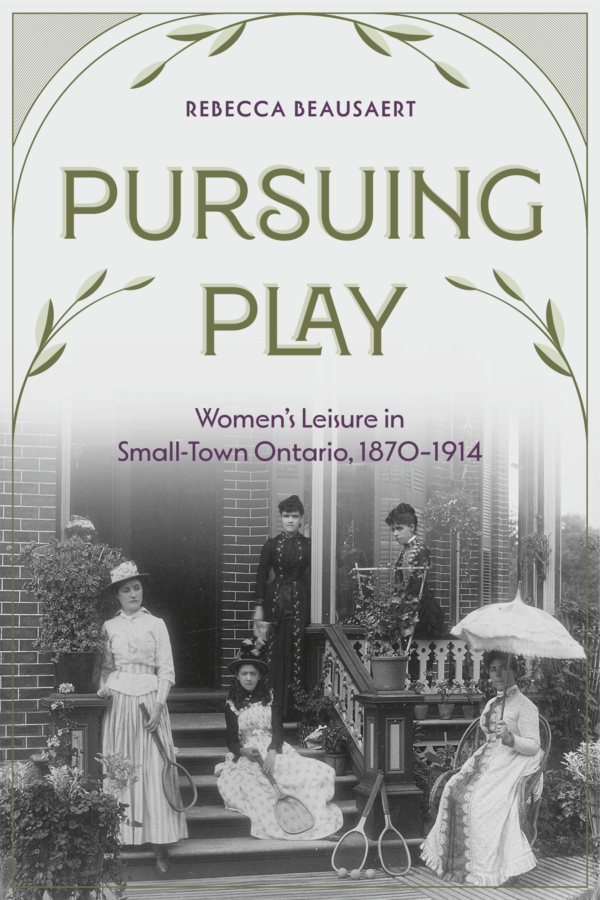
Pursuing Play
Women’s Leisure in Small-Town Ontario, 1870–1914
In telling the story of what small-town women did for fun while navigating social hierarchies, nurturing ties of kinship and friendship, and advancing community development, Pursuing Play adds a new dimension to Canadian histories of gender, leisure, and popular culture.
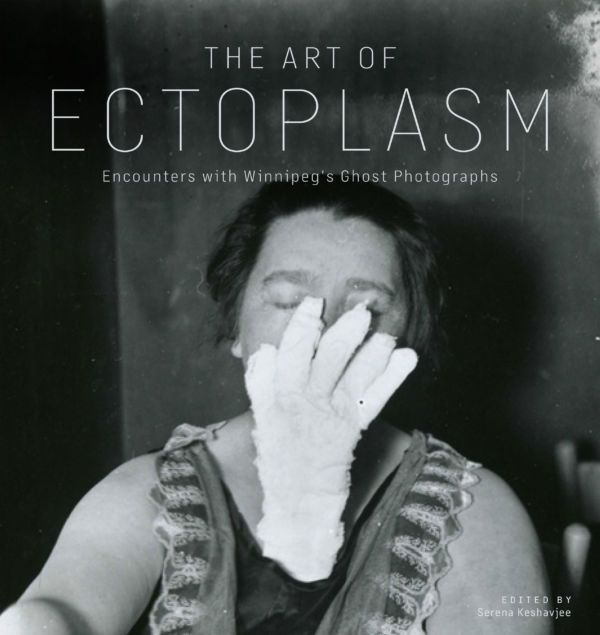
The Art of Ectoplasm
Encounters with Winnipeg's Ghost Photographs
The Art of Ectoplasm reflects on the history and legacy of T.G. and Lillian Hamilton's extraordinary collection of paranormal photographs, which have inspired and perplexed academics, historians, and artists since their creation a century ago, and offers a compelling look at a chapter in social history not entirely unlike our own.
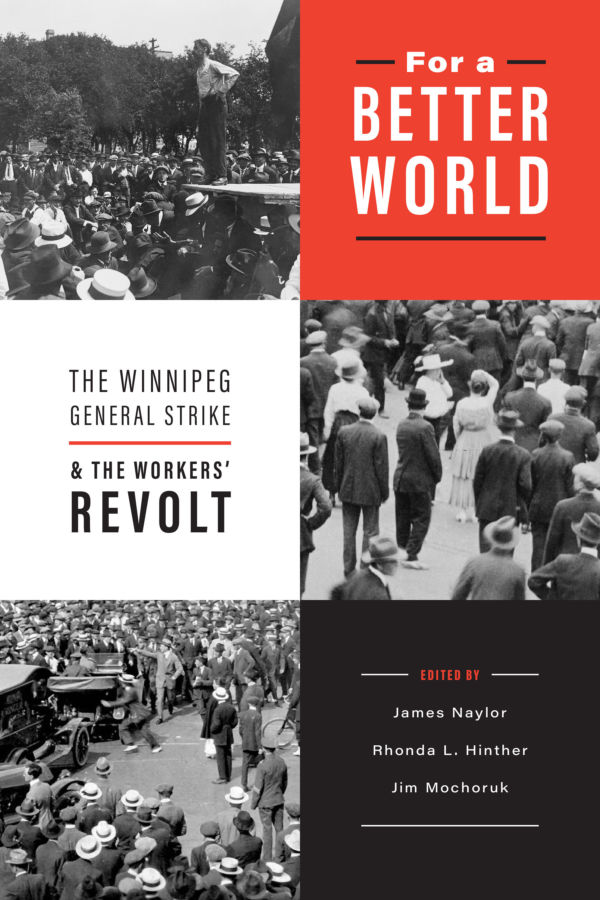
For a Better World
The Winnipeg General Strike and the Workers' Revolt
Canada’s most famous example of class conflict, the Winnipeg General Strike, redefined conversations around class, politics, region, ethnicity, and gender. For a Better World interrogates types of commemoration, current legacies of the Strike, and its ongoing influence.
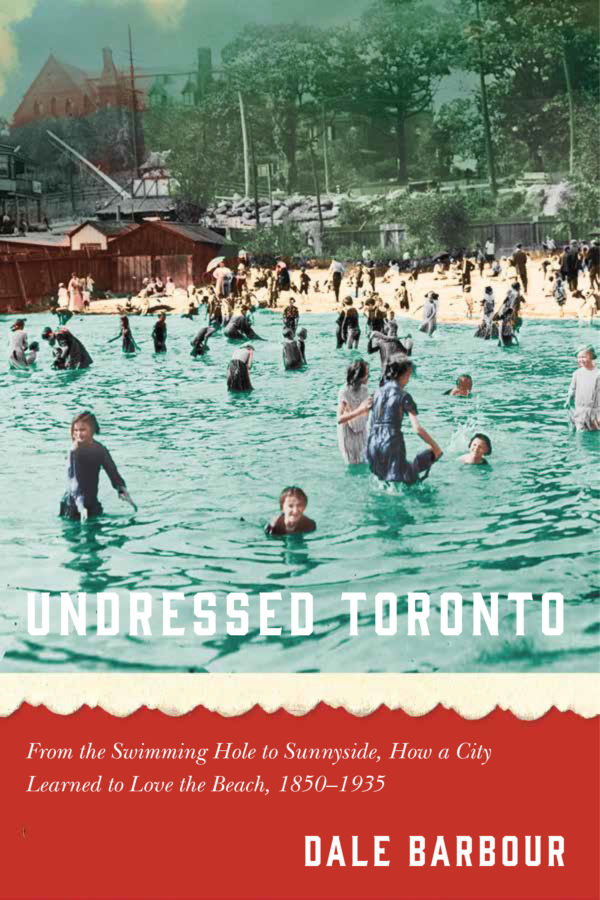
Undressed Toronto
From the Swimming Hole to Sunnyside, How a City Learned to Love the Beach, 1850–1935
Undressed Toronto challenges assumptions about class, the urban environment, and the presentation of the naked body in five Toronto environments.
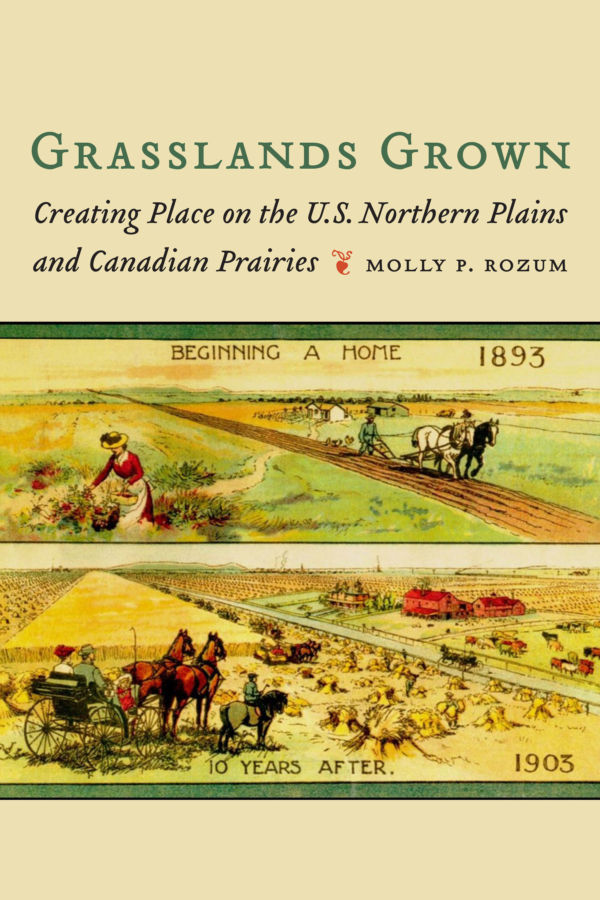
Grasslands Grown
Creating Place on the U.S. Northern Plains and Canadian Prairies
An exploration of modern regionalism and senses of place developing among generations of settler colonial society on North America’s northern grasslands.
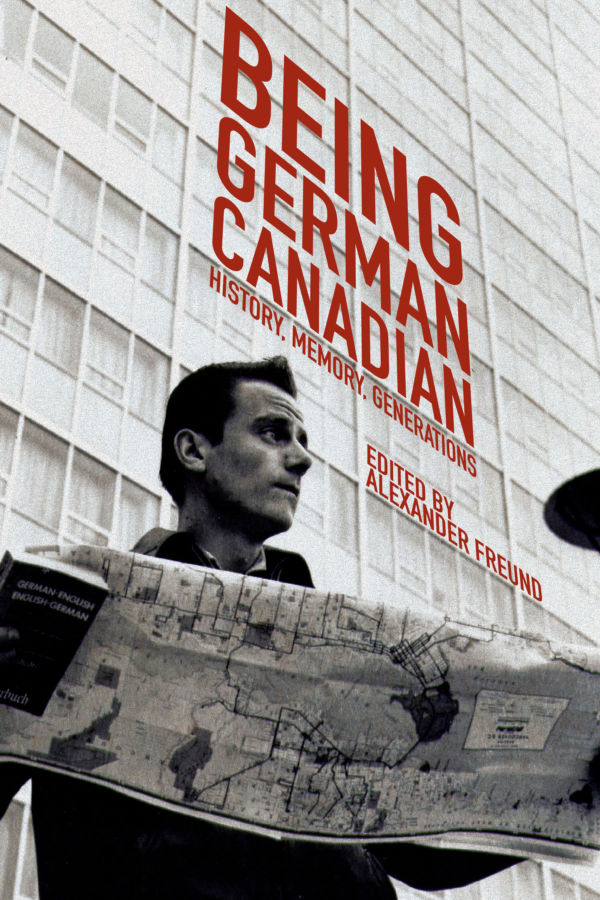
Being German Canadian
History, Memory, Generations
Being German Canadian explores how multi-generational families and groups have interacted and shaped each other’s integration and adaptation in Canadian society, focusing on the experiences, histories, and memories of German immigrants and their descendants.
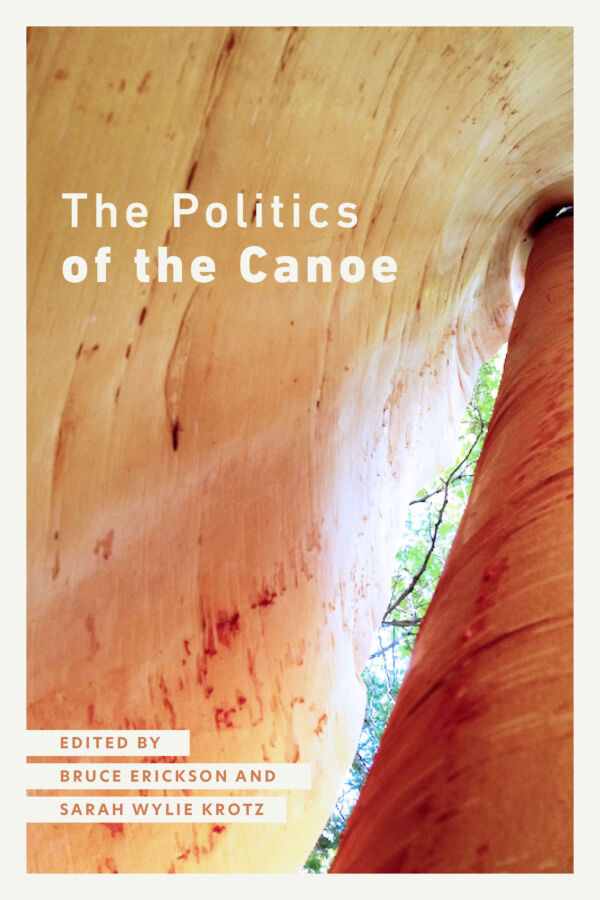
Popularly thought of as a recreational vehicle and one of the key ingredients of an ideal wilderness getaway, the canoe is also a political vessel. The Politics of the Canoe expands and enlarges the stories that we tell about the canoe’s relationship to colonialism, nationalism, environmentalism, and resource politics.
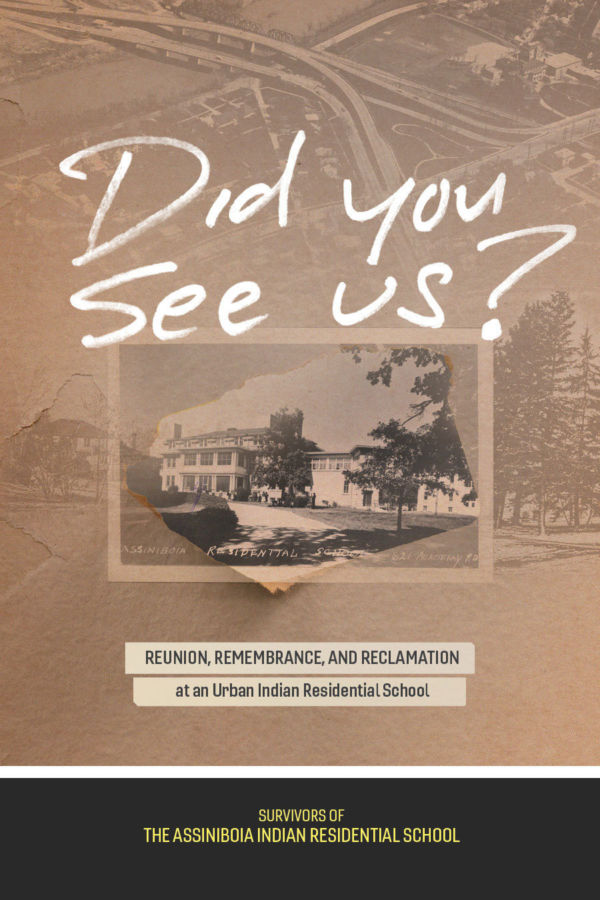
Did You See Us?
Reunion, Remembrance, and Reclamation at an Urban Indian Residential School
The Assiniboia school was the first residential high school in Manitoba and one of the only residential schools in Canada to be located in a large urban setting. These recollections of Assiniboia at times diverge, but together exhibit Survivor resilience and the strength of the relationships that bond them to this day.
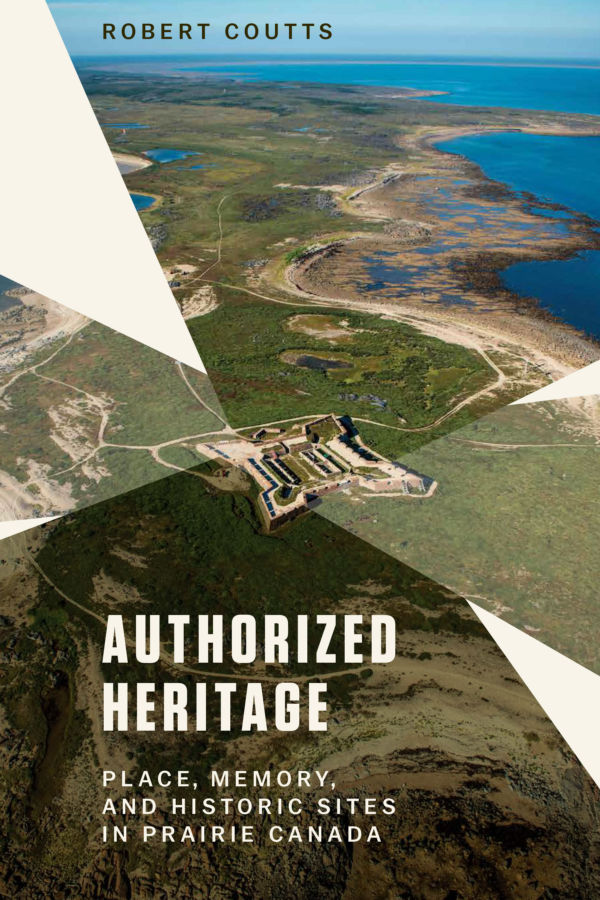
Authorized Heritage
Place, Memory, and Historic Sites in Prairie Canada
Authorized Heritage examines how governments became the mediators of what is heritage and, just as significantly, what is not.
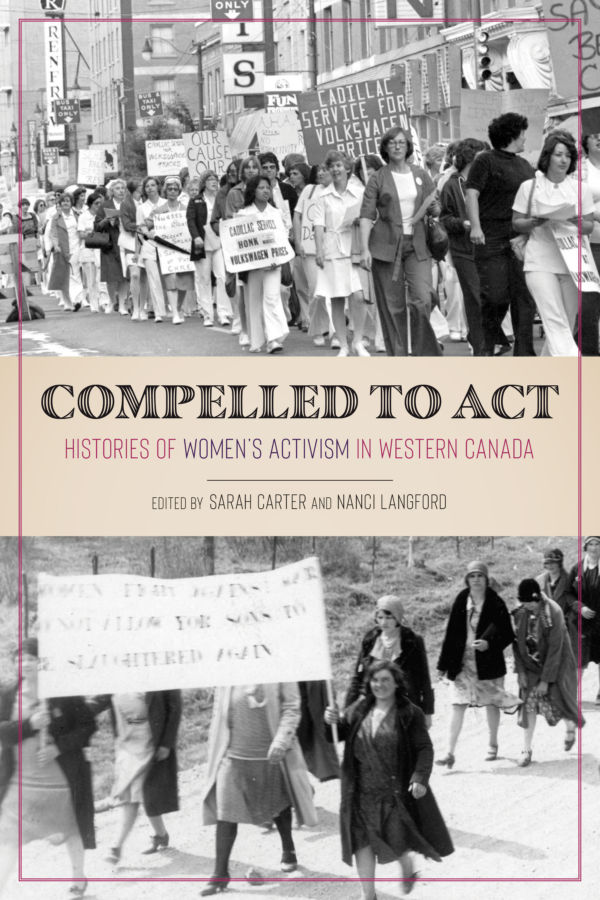
Compelled to Act
Histories of Women's Activism in Western Canada
Compelled to Act showcases fresh historical perspectives on the diversity of women’s contributions to social and political change in prairie Canada in the 20th century, including but looking beyond the era of suffrage activism.
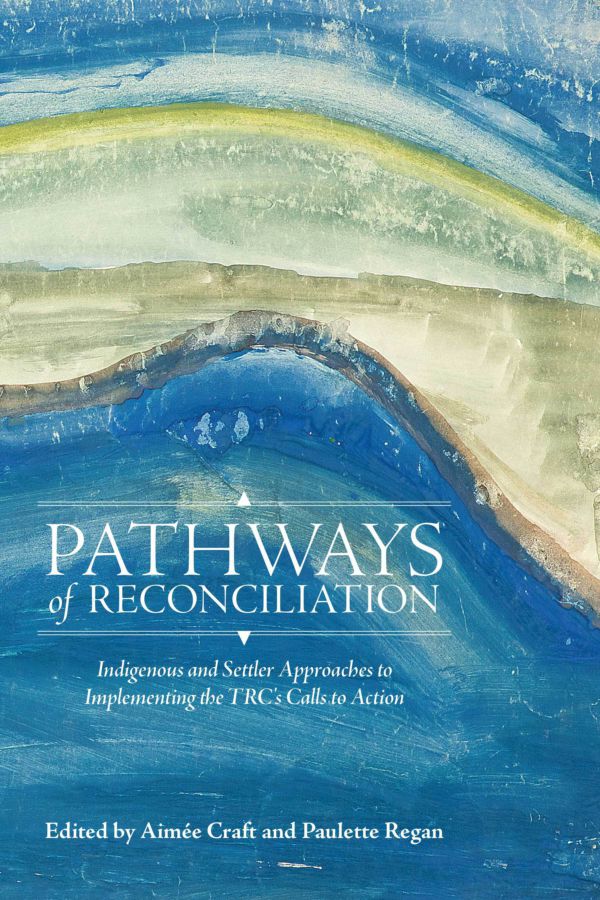
Pathways of Reconciliation
Indigenous and Settler Approaches to Implementing the TRC's Calls to Action
Recognizing that reconciliation is not only an ultimate goal, but a decolonizing process of journeying in ways that embody everyday acts of resistance, resurgence, and solidarity, Pathways of Reconciliation helps readers concerned about how to respond to the TRC of Canada’s Calls to Action find their way forward.
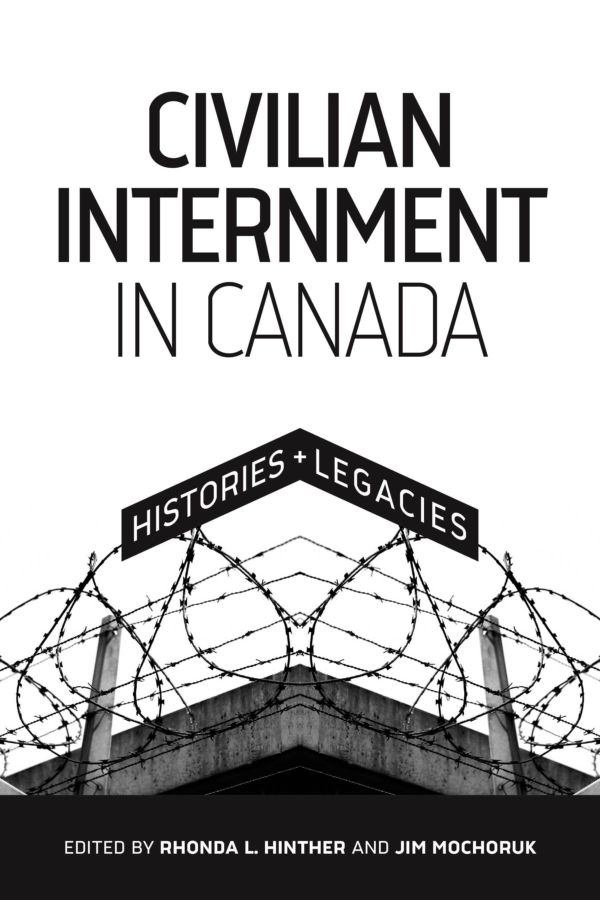
Civilian Internment in Canada
Histories and Legacies
Civilian Internment in Canada initiates a conversation about not only internment, but also about the laws and procedures—past and present—which allow the state to disregard the basic civil liberties of some of its most vulnerable citizens.
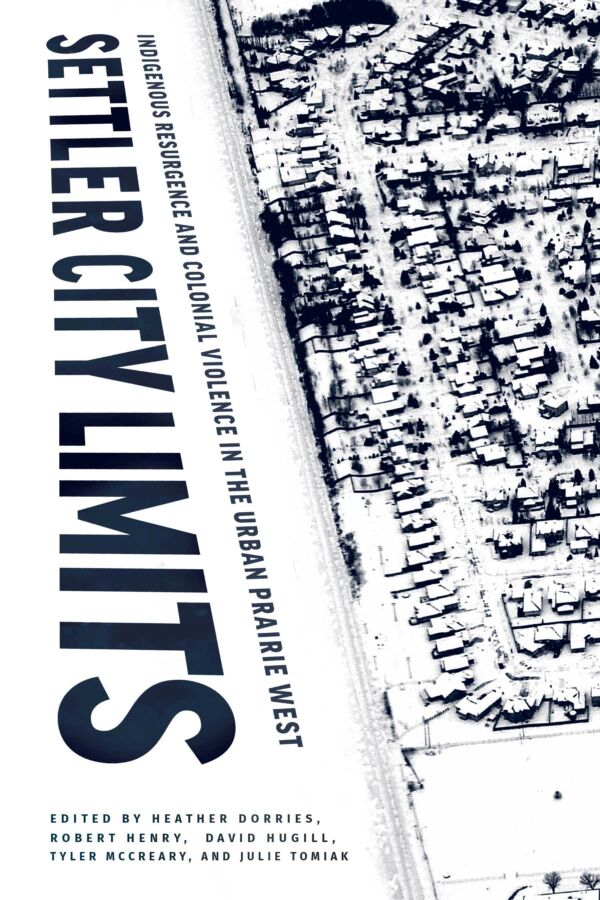
Settler City Limits
Indigenous Resurgence and Colonial Violence in the Urban Prairie West
While cities like Winnipeg, Minneapolis, Saskatoon, Rapid City, Edmonton, Missoula, Regina, and Tulsa are places where Indigenous marginalization has been most acute, they have also long been sites of Indigenous placemaking and resistance to settler colonialism.
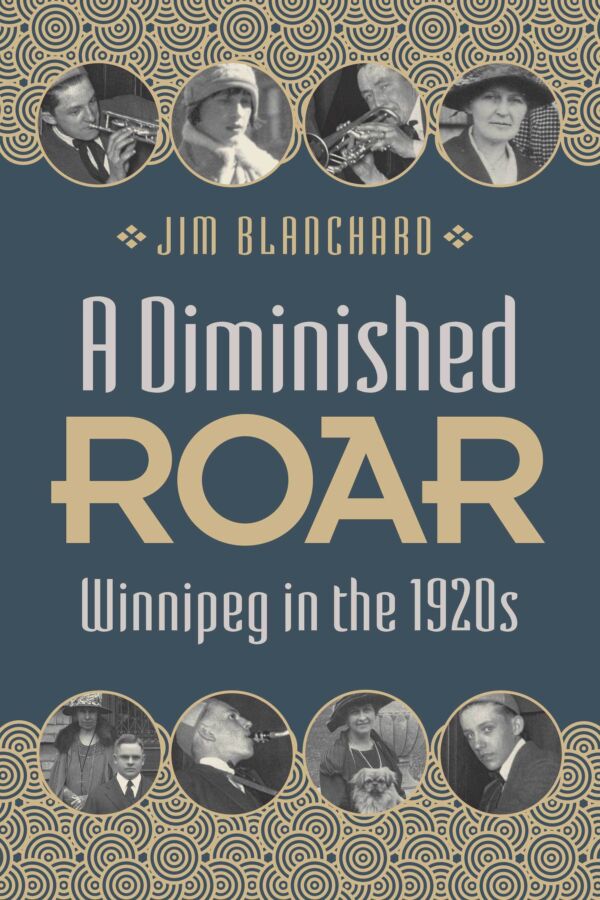
A Diminished Roar
Winnipeg in the 1920s
The third instalment in Jim Blanchard’s popular history of early Winnipeg, A Diminished Roar guides readers through the prairie city in 1920s, a decade of political and social turmoil.
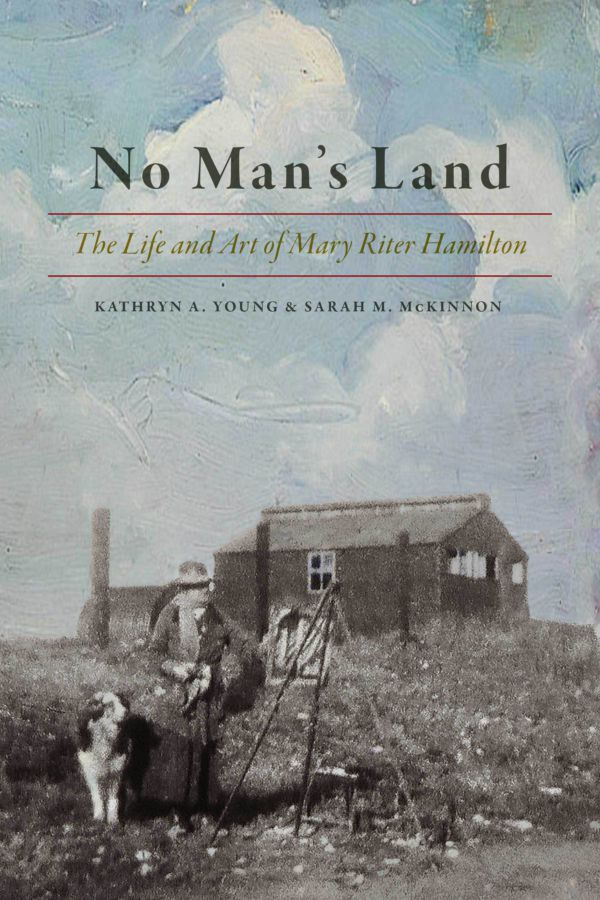
No Man's Land
The Life and Art of Mary Riter Hamilton, 1868-1954
The life story of artist Mary Riter Hamilton (1868-1954) is one of tragedy and adventure, from homestead beginnings, to genteel drawing rooms in Winnipeg, Victoria and Vancouver, to Berlin and Parisian art schools, to Vimy and Ypres, and finally to illness and poverty. No Man’s Land is the first biographical study of Hamilton.
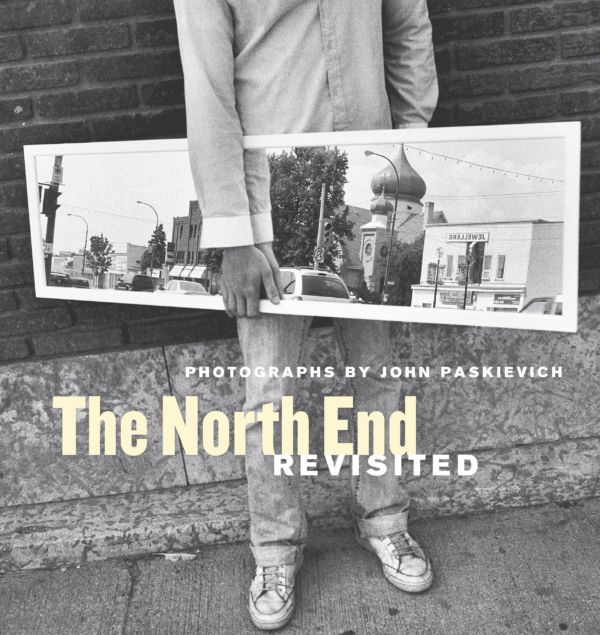
The North End Revisited
Photographs by John Paskievich
Cities and the people who live in them are enduring subjects of photography. Winnipeg’s North End is one of North America’s iconic neighbourhoods, a place where the city’s unique character and politics have been forged.

Snacks
A Canadian Food History
Through extensive oral history and archival research, Thiessen uncovers the roots of our deep loyalties to different snack foods, what it means to be an independent snack food producer, and the often-quirky ways snacks have been created and marketed.
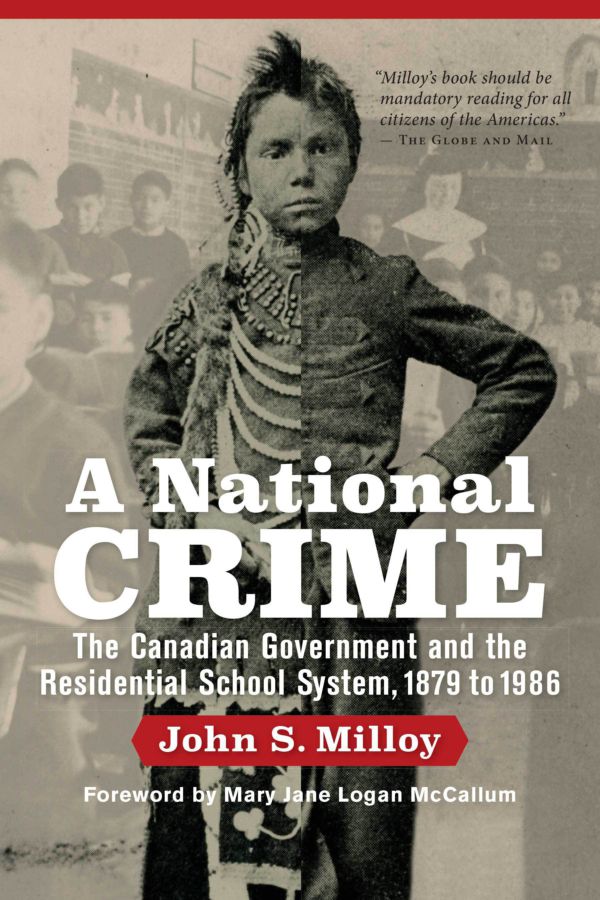
A National Crime (2nd Edition)
The Canadian Government and the Residential School System
A National Crime shows that the residential system was chronically underfunded and often mismanaged, and documents in detail how this affected the health, education, and well-being of entire generations of Indigenous children.

